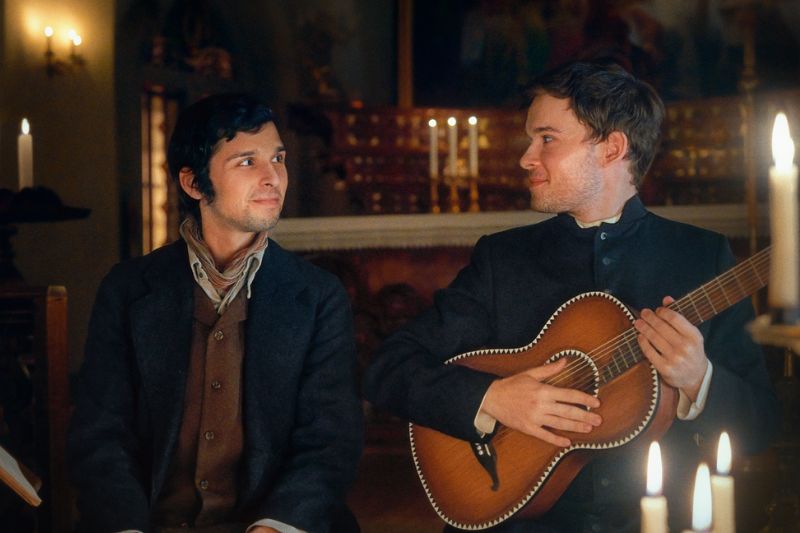I knew I was overtired recently when I found myself getting teary watching a Qantas ad. But the truth is, modern advertisements are fuelled by brilliantly creative people, and some are masterpieces of emotional manipulation. Frequently this applies to products or services you’d rather not be connected to, (Sportsbet anyone?) but nonetheless find yourself entertained, moved and inspired by productions that could pass as award-winning short films.

The annual Christmas ad for Austria’s financial services provider, Erste, is an example of this and an anticipated event watched by millions of people — the agency that produces these annual campaigns has won over 50 industry awards for them since 2018. This year the focus is on the most recorded Christmas song in history, Silent Night.
The ad tells the story of the beloved Christmas carol, beginning with its composition by the young priest Joseph Mohr in 1818. In the shadow of the Napoleonic wars, and the ensuing poverty that surrounded him, on Christmas Eve Mohr presented the lyrics to his composer friend Franz Xaver Gruber, who came up with the melody. That night it was played in St Nicholas church north of Salzburg, to the wonderment of those gathered.
Or so the story goes.
It is all captured magnificently by the Erste ad, which then tracks the song’s journey through time, being played by a Tyrolean singing group for King Franz I of Austria in 1822, then by Reginald Fessenden’s violin during the very first broadcast of radio entertainment in America in 1906. Next, the pathos of the trenches of WWI with British and German troops singing it is given a haunting run, followed by astronauts of ‘Skylab 4’ orbiting earth in 1973. Moving to a contemporary setting on a beach, a guitar player serenades his friends, before we see a mother nursing her baby to sleep, and a school kid’s Christmas concert.
‘Silent Night’ has done the rounds and captured here is the sense of longing this carol always manages to evoke. The contrast of the beautiful simplicity of the song set against the vicissitudes of the human drama is captivating.
Which is why the end of this ad is such a travesty! With closing vision overlooking the snow-covered Austrian village of Joseph Mohr, these words appear on the screen:
‘Your spark can light up the world. Believe in yourself. Believe in Christmas.’
The idea is that a simple action of one person can bring hope to others and add light to their world. Fair enough. It’s true that Joseph Mohr’s musical gesture has made a big impact in ‘lighting up the world’ but it’s comical to link the rural priest’s message to the 21st Century mantra of a generation brought up on the self-esteem movement: ‘believe in yourself’. That would have been incomprehensible to him. Mohr was pointing to, and drawing inspiration from, a story outside of himself where he could discover wonder, awe and beauty.
The power of ‘Silent Night’ resides in its capacity to lift our gaze, for a brief moment, away from the chaos of our lives, towards the baby in the manger and the mysterious promise of ‘heavenly peace’ associated with that baby and what he would become. It’s appealing to an orientation of the heart outwards and upwards in search of something we don’t have the ability to produce on our own.
Franciscan monk Richard Rohr, a popular writer on spirituality, identifies key insights in the growth towards health and maturity. One of these insights is learning that life is not primarily about you! That idea jars with modern sensibilities but Rohr believes that being comfortable with not being the centre of all things is, counter-intuitively, the beginning of freedom.
Among many other things, ‘Silent Night’, and the history-altering event it describes, is appealing to an ancient account of God appearing among us in a profoundly healing and redemptive act, to make possible what we, on our own, are incapable of achieving. ‘Christ the saviour is born’, wrote Joseph Mohr in 1818. In the deeply fractured and ravaged world of 2024, the notion of a saviour is a message that plenty of people could find appealing. Coached as they are, to endlessly look for strength within to deal with life’s challenges, it is becoming more apparent that no amount of ‘believing in myself’ will provide that ‘heavenly peace’ we all long for.